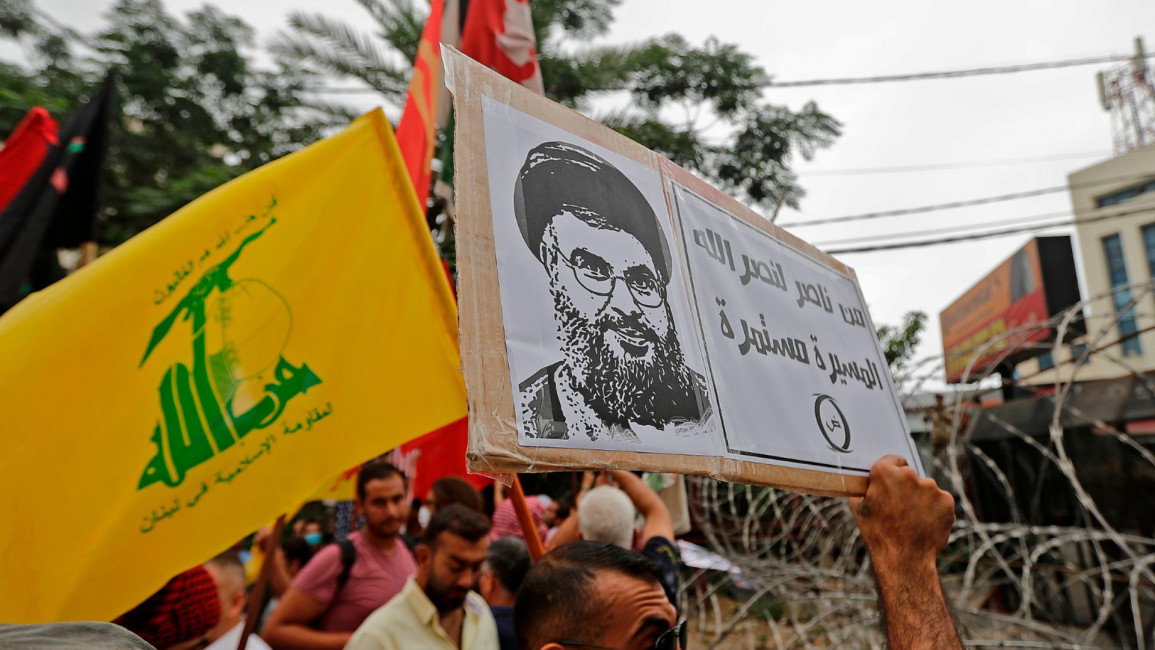Hezbollah says maritime border talks not 'normalisation' with Israel
Hezbollah on Thursday said US-backed talks aimed at delineating Lebanon's disputed maritime border with Israel did not signify "reconciliation" or "normalisation".
Lebanon and Israel, which are still technically at war, last week said they had agreed to begin UN-brokered negotiations over the sea frontier, in what Washington hailed as a "historic" agreement.
The talks had "absolutely nothing to do with either any reconciliation with the Zionist enemy... or policies of normalisation recently adopted... by Arab states," Hezbollah's parliamentary bloc said.
"Defining the coordinates of national sovereignty is the responsibility of the Lebanese state," it said in a statement, the movement's first official comment on the start of the negotiations.
Last month, Bahrain and the United Arab Emirates became the first Arab nations to establish normalised relations with Israel since Egypt in 1979 and Jordan in 1994.
The Iran-backed Hezbollah is both an armed group that has fought several wars against Israel and a major force in Lebanese politics with seats in parliament.
|
|
It has also intervened in the Syrian conflict on the side of Bashar al-Assad’s regime.
Considered to be a "terrorist" group by the US, it is the only Lebanese group not to have disarmed after the country's 1975-1990 civil war.
Israeli Energy Minister Yuval Steinitz later said the talks would begin next Wednesday at the headquarters of the UN peacekeeping force UNIFIL in the Lebanese border town of Naqoura.
Israel, he said, would send a six-member team to the October 14 talks.
They would include Udi Adiri, director general of the energy ministry, Prime Minister Benjamin Netanyahu's foreign policy adviser Reuven Azar and the army's strategic division head Brigadier General Oren Setter.
Lebanon named its negotiators on Wednesday, while the UN said that the Israeli and Lebanese delegates would be in the same room but not speak directly to each other.
The issue of the sea frontier is especially sensitive as crisis-hit Lebanon hopes to continue exploring for oil and gas in a part of the Mediterranean disputed by Israel.
In February 2018, Lebanon signed its first contract for offshore drilling for oil and gas in two blocks in the Mediterranean with a consortium comprising energy giants Total, ENI and Novatek.
Lebanon in April said initial drilling in Block 4 had shown traces of gas but no commercially viable reserves.
Exploration of the other, Block 9, has not started and is more controversial as ownership is disputed by Israel.
Parliament speaker Nabih Berry, a key Hezbollah ally, announced the talks last week.
The deal follows years of US shuttle diplomacy between the two sides.
As well as the discussions on the maritime border to be facilitated by the US, a separate UNIFIL-brokered track is also to address the disputed land border.
Follow us on Facebook, Twitter and Instagram to stay connected



